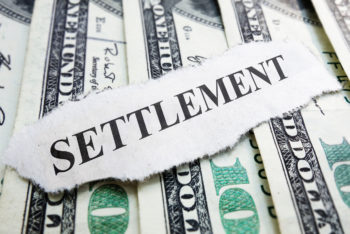 When an insurance company offers you a settlement, they are essentially acknowledging their client’s fault in the accident. They want you to settle to avoid litigation or going to court. Insurance companies usually do not want to get legal help involved, If you get a call from them before you have contacted your lawyer absolutely tell them you want to consult with an attorney before agreeing to settle a case. If the injuries are sustained in any kind of collision, and whether the injuries appear minor or resulted in a fatality, broken bones, paralysis, or other injuries, you should talk to an attorney before talking to an insurance agent or adjuster about the facts of the case.
When an insurance company offers you a settlement, they are essentially acknowledging their client’s fault in the accident. They want you to settle to avoid litigation or going to court. Insurance companies usually do not want to get legal help involved, If you get a call from them before you have contacted your lawyer absolutely tell them you want to consult with an attorney before agreeing to settle a case. If the injuries are sustained in any kind of collision, and whether the injuries appear minor or resulted in a fatality, broken bones, paralysis, or other injuries, you should talk to an attorney before talking to an insurance agent or adjuster about the facts of the case.
The Insurer’s Goal
Insurance companies are not on your side. their goal is to pay an injured person as little as possible. Never allow an adjuster to bully you to try to convince you and make you agree to a damaging statement. The most important rule to follow when notifying your insurance company about a crash is to keep it simple.
You can tell the insurance representative…
- There was a crash
- Where the crash happened
- Whether your car was damaged
Saying much more than the bare minimum can do more harm than good in your situation, although it pays to read the insurance policy to confirm that you are not legally obligated to provide more information. Leave it up to them to dispatch a claims adjuster to examine the scene and conduct an investigation.
The Problem With a Money Offer
Sometimes insurance adjusters offer a sum of money immediately after an accident offering to settle your personal injury case. Usually, it is far less than your case may be worth. The full extent of your personal injuries may not be known until many many months or up to a year after an accident. If you accept a settlement in exchange for waiving your claims, you may give up your right to pursue compensation even where your injuries turn out to be very serious. You may be waiving your right to file a claim under your health insurance policy that you aren’t even aware of.
How a Personal Injury Attorney Can Help
A personal injury lawyer helps individuals who have sustained injuries in accidents to recover financial compensation. These funds are often needed to pay for medical treatment, make up for lost wages, pain, and suffering, and provide compensation for injuries suffered. Personal injury lawyers are expected to follow strict set principles of legal ethics when working with their clients. A personal injury attorney is familiar with many different kinds of injuries and evaluations of what a case is reasonably worth. Most people want to be polite and helpful in interacting with others. However, talking to an insurance adjuster without the participation of an attorney is not advisable. Finally, the simple act of having legal representation can make your insurance company take your claim more seriously. When they learn that you have hired a lawyer, they will know that they cannot roll over your interests and are more likely to make a higher initial offer that is closer to what you really deserve.
Contact us (859-341-2500) for a Free Consultation!
—
 About Grubbs & Landry
About Grubbs & Landry
At Grubbs & Landry, PLLC, we are dedicated to personal and friendly service. We manage our practice in an ethical, cost-effective manner to best help our clients resolve their legal issues with the least expense possible. We pride ourselves in advocating for our client in divorce, child custody, and child support matters as well as other family law matters. We are active in prosecuting personal injury cases-recovering for the injuries our clients sustain due to the negligence of others. Additionally, we help our clients prepare for the future through the preparation of Wills, Power of Attorney and Living Will.
>> Learn More

